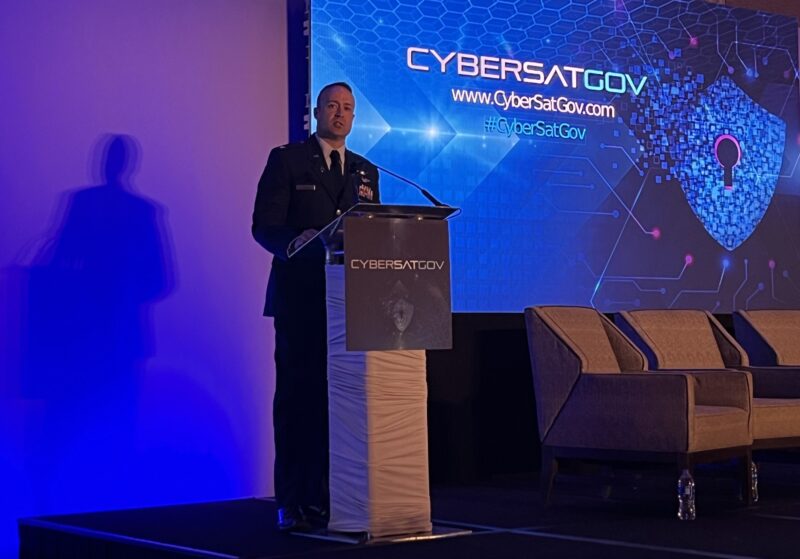Latest News
Cyber Security of Space Systems ‘Crucial,’ As US Space Force Official Notes Recent Attacks

Col. Richard Kniseley, senior material leader of the Space Force’s Commercial Space Office, speaking at CyberSatGov on Nov. 6. Photo: Via Satellite
RESTON, VIRGINIA — A number of recent cyberattacks on space systems highlight the need for their improved security, a U.S. Space Force official said on Nov. 6.
“The U.S. and our allied forces must now contend with growing threats from satellite link interceptions,” Col. Richard Kniseley, senior material leader of the Space Force’s Commercial Space Office at Los Angeles AFB, California, told attendees at the CyberSatGov conference in Reston, Va. “This results from advanced jamming techniques and illegal satellite uplinks. Our operations are hindered by compromised communication integrity and potential data breaches.”
China uses artificial intelligence/machine learning for “sophisticated” phishing and business email cyberattacks, which are relatively low-cost, he said.
Citing information provided by Erin Miller, the executive director of the Space Information Sharing and Analysis Center (Space ISAC) in Colorado Springs, Kniseley said that between Oct. 9 and Oct. 13, “39 cyber threat actors conducted 101 cyber significant acts focusing their attacks on health care, manufacturing, government, education, legal and technology sectors.”
“Mitigating these cyberattacks on space networks is crucial to ensure the security and reliability of satellite communication and other space based systems,” he said.
In March, Space ISAC opened an Operational Watch Center alongside the National Cybersecurity Center in Colorado Springs to monitor, analyze and respond quickly to cyber threats to space systems. The Operational Watch Center has a Microsoft Azure-hosted cloud architecture, to allow members to access the center remotely.
Established in 2019, Space ISAC said that it shares free alerts and advisories from members and partners with current adversary activity. Its members receive daily notices of cyber threats, incidents, and vulnerabilities to critical systems, Space ISAC said.
Kniseley said that Space Systems Command wants to establish an agreement with Space ISAC, “as we build out our Commercial Augmented Space Reserve Framework [CASRF],” modeled on the Civil Reserve Air Fleet.
“Threat sharing will be a foundational piece of CASRF,” he said. “It is important for industry to understand what is going on in the area of responsibility in order to inform business decisions, protect systems, and be more responsive to warfighter and allied needs.”
Commercial innovation in a development to fielding timeline of three years or less, as favored by Assistant Secretary of the Air Force for Space Acquisition and Integration Frank Calvelli “can bring decisive advantage” to military forces, Kniseley said. “This is all part of a larger cultural shift. In order to be successful, we cannot keep building capabilities in house.”
Get the latest Via Satellite news!
Subscribe Now